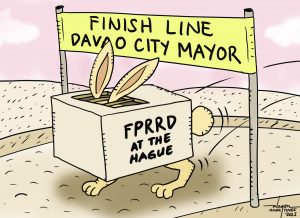PRESS freedom groups and climate activist Greta Thunberg are making Nobel Peace Prize buzz ahead of next week’s award announcements, in a pandemic year that has highlighted the importance of science and research.
The Nobel prizes for literature and peace, to be announced on October 8 and 9 respectively, tend to garner the most public interest, given occasionally to well-known people or organisations.
But the prizes for medicine, physics, chemistry and economics are usually awarded to research teams toiling for decades far from the limelight, perhaps stars in their fields but rarely known to the public.
This year, the new coronavirus has brought science centre-stage.
“The pandemic is a big crisis for mankind, but it illustrates how important science is,” Nobel Foundation head Lars Heikensten said.
No prizes are expected to be awarded this year for work directly linked to the virus, as Nobel prizewinning research usually takes many years to be verified.
The virus could however influence the various committees that select the laureates.
“The pandemic has changed us as thinking beings for the foreseeable future,” Bjorn Wiman, culture editor at Sweden’s biggest daily Dagens Nyheter, told AFP.
For the Swedish Academy, which awards the Nobel Literature Prize, “it’s clear the pandemic will have some kind of effect on the reflections of the (Academy’s) Nobel committee members. They’re just people too”.
“Other things perhaps seem more important now than six months ago,” Wiman said.
– ‘No real peace strides’ –
Nobel Peace Prize experts meanwhile noted the lack of a clear frontrunner this year.
“There aren’t any real major strides forward for peace or peace agreements,” Dan Smith, head of the Stockholm International Peace Research Institute (SIPRI), told AFP.
Nobel historian Asle Sveen said Reporters Without Borders (RSF) was his favourite for the prize, a choice echoed by the head of the Peace Research Institute of Oslo (PRIO), Henrik Urdal, who also mentioned the Committee to Protect Journalists.
“During conflicts, it’s extremely important that journalists contribute to provide information about what’s happening, both in order to hold the conflict parties accountable for their actions as well as providing information to the outside world,” Urdal told AFP.
Smith and Sveen also both mentioned Greta Thunberg — who has repeatedly urged world leaders to “listen to the science” on climate change — as a possible winner, most likely together with other activists.
“I think the committee may go outside of a narrow peace definition,” Smith said.
Other experts have meanwhile suggested the World Health Organisation could take home the prize.
Last year, it went to Ethiopian Prime Minister Abiy Ahmed for ending a 20-year postwar stalemate with Eritrea. Agence France Presse

